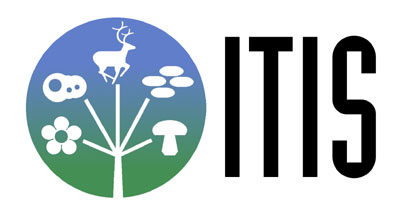Property of a microorganism
mo_property.RdUse these functions to return a specific property of a microorganism from the microorganisms data set. All input values will be evaluated internally with as.mo.
mo_fullname(x, language = get_locale(), ...) mo_shortname(x, language = get_locale(), ...) mo_subspecies(x, language = get_locale(), ...) mo_species(x, language = get_locale(), ...) mo_genus(x, language = get_locale(), ...) mo_family(x, ...) mo_order(x, ...) mo_class(x, ...) mo_phylum(x, ...) mo_subkingdom(x, ...) mo_kingdom(x, ...) mo_type(x, language = get_locale(), ...) mo_gramstain(x, language = get_locale(), ...) mo_ref(x, ...) mo_authors(x, ...) mo_year(x, ...) mo_taxonomy(x, ...) mo_property(x, property = "fullname", language = get_locale(), ...)
Arguments
| x | any (vector of) text that can be coerced to a valid microorganism code with |
|---|---|
| language | language of the returned text, defaults to system language (see |
| ... | other parameters passed on to |
| property | one of the column names of one of the |
Value
An
integerin case ofmo_yearA
listin case ofmo_taxonomyA
characterin all other cases
Details
All functions will return the most recently known taxonomic property according to ITIS, except for mo_ref, mo_authors and mo_year. This leads to the following results:
mo_fullname("Chlamydia psittaci")will return"Chlamydophila psittaci"(with a warning about the renaming)mo_ref("Chlamydia psittaci")will return"Page, 1968"(with a warning about the renaming)mo_ref("Chlamydophila psittaci")will return"Everett et al., 1999"(without a warning)
Supported languages
Supported languages are "en" (English), "de" (German), "nl" (Dutch), "es" (Spanish), "it" (Italian), "fr" (French), and "pt" (Portuguese).
ITIS

This package contains the complete microbial taxonomic data (with all nine taxonomic ranks - from kingdom to subspecies) from the publicly available Integrated Taxonomic Information System (ITIS, https://www.itis.gov).
All ~20,000 (sub)species from the taxonomic kingdoms Bacteria, Fungi and Protozoa are included in this package, as well as all their ~2,500 previously accepted names known to ITIS. Furthermore, the responsible authors and year of publication are available. This allows users to use authoritative taxonomic information for their data analysis on any microorganism, not only human pathogens. It also helps to quickly determine the Gram stain of bacteria, since ITIS honours the taxonomic branching order of bacterial phyla according to Cavalier-Smith (2002), which defines that all bacteria are classified into either subkingdom Negibacteria or subkingdom Posibacteria.
ITIS is a partnership of U.S., Canadian, and Mexican agencies and taxonomic specialists [3].
Source
[1] Becker K et al. Coagulase-Negative Staphylococci. 2014. Clin Microbiol Rev. 27(4): 870–926. https://dx.doi.org/10.1128/CMR.00109-13
[2] Lancefield RC A serological differentiation of human and other groups of hemolytic streptococci. 1933. J Exp Med. 57(4): 571–95. https://dx.doi.org/10.1084/jem.57.4.571
[3] Integrated Taxonomic Information System (ITIS). Retrieved September 2018. http://www.itis.gov
Read more on our website!

On our website https://msberends.gitlab.io/AMR you can find a comprehensive tutorial about how to conduct AMR analysis, the complete documentation of all functions (which reads a lot easier than here in R) and an example analysis using WHONET data.
See also
Examples
# NOT RUN { # All properties of Escherichia coli ## taxonomic properties mo_kingdom("E. coli") # "Bacteria" mo_subkingdom("E. coli") # "Negibacteria" mo_phylum("E. coli") # "Proteobacteria" mo_class("E. coli") # "Gammaproteobacteria" mo_order("E. coli") # "Enterobacteriales" mo_family("E. coli") # "Enterobacteriaceae" mo_genus("E. coli") # "Escherichia" mo_species("E. coli") # "coli" mo_subspecies("E. coli") # NA ## colloquial properties mo_fullname("E. coli") # "Escherichia coli" mo_shortname("E. coli") # "E. coli" ## other properties mo_gramstain("E. coli") # "Gram negative" mo_type("E. coli") # "Bacteria" (equal to kingdom) ## scientific reference mo_ref("E. coli") # "Castellani and Chalmers, 1919" mo_authors("E. coli") # "Castellani and Chalmers" mo_year("E. coli") # 1919 # Abbreviations known in the field mo_genus("MRSA") # "Staphylococcus" mo_species("MRSA") # "aureus" mo_shortname("MRSA") # "S. aureus" mo_gramstain("MRSA") # "Gram positive" mo_genus("VISA") # "Staphylococcus" mo_species("VISA") # "aureus" # Known subspecies mo_genus("doylei") # "Campylobacter" mo_species("doylei") # "jejuni" mo_fullname("doylei") # "Campylobacter jejuni doylei" mo_fullname("K. pneu rh") # "Klebsiella pneumoniae rhinoscleromatis" mo_shortname("K. pneu rh") # "K. pneumoniae" # Becker classification, see ?as.mo mo_fullname("S. epi") # "Staphylococcus epidermidis" mo_fullname("S. epi", Becker = TRUE) # "Coagulase Negative Staphylococcus (CoNS)" mo_shortname("S. epi") # "S. epidermidis" mo_shortname("S. epi", Becker = TRUE) # "CoNS" # Lancefield classification, see ?as.mo mo_fullname("S. pyo") # "Streptococcus pyogenes" mo_fullname("S. pyo", Lancefield = TRUE) # "Streptococcus group A" mo_shortname("S. pyo") # "S. pyogenes" mo_shortname("S. pyo", Lancefield = TRUE) # "GAS" ('Group A streptococci') # Language support for German, Dutch, Spanish, Portuguese, Italian and French mo_gramstain("E. coli", language = "de") # "Gramnegativ" mo_gramstain("E. coli", language = "nl") # "Gram-negatief" mo_gramstain("E. coli", language = "es") # "Gram negativo" # mo_type is equal to mo_kingdom, but mo_kingdom will remain official mo_kingdom("E. coli") # "Bacteria" on a German system mo_type("E. coli") # "Bakterien" on a German system mo_type("E. coli") # "Bacteria" on an English system mo_fullname("S. pyogenes", Lancefield = TRUE, language = "de") # "Streptococcus Gruppe A" mo_fullname("S. pyogenes", Lancefield = TRUE, language = "nl") # "Streptococcus groep A" # Get a list with the complete taxonomy (subkingdom to subspecies) mo_taxonomy("E. coli") # }